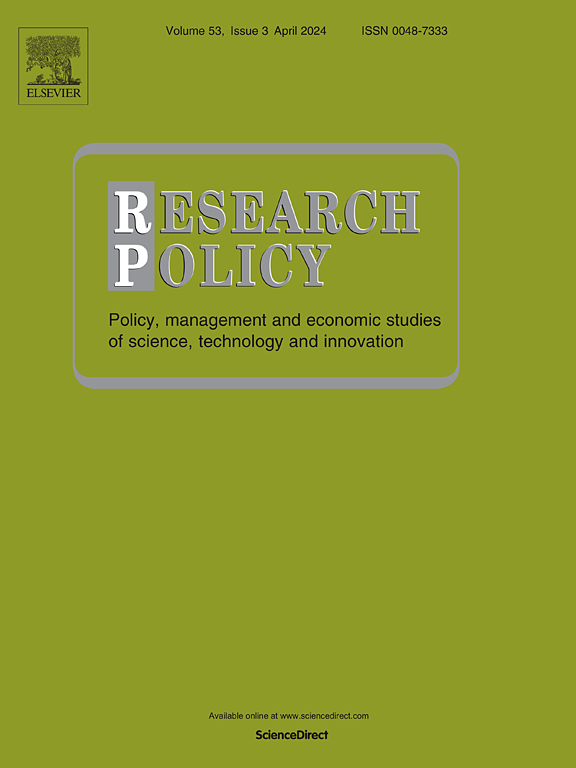Digital innovation strategies in the public sector
IF 8
1区 管理学
Q1 MANAGEMENT
引用次数: 0
Abstract
Despite the increasing attention on digital innovations in the private sector, little is known about digital innovation strategies in the public sector. This knowledge gap is growing as public sector employees are increasingly embracing new digital tools and ideas. Drawing on rich qualitative data from practitioners in 25 cities across 18 countries, this study analyzes the digital innovation strategies pursued in the public sector, with specific attention placed on digital orientation and the foci of value creation activities. Extending the OECD's Observatory of Public Sector Innovation (OPSI) framework, we identify four distinct digital innovation strategies in the public sector: enhancement-oriented, anticipatory, adaptive, and persistent. Our findings reveal that enhancement-oriented and persistent strategies are the most prevalent, reflecting a strong focus on internal value creation through process optimization and long-term organizational change. In contrast, adaptive and anticipatory strategies are less common. We find a near-equal prevalence of incremental and transformational goals, indicating balanced strategic orientation. Our findings also suggest that practitioners often employ multiple strategies, reflecting the multifacetedness of driving digital innovation in the public sector. We provide valuable insights into various activities linked to the four identified innovation strategies, ending with a comprehensive discussion of our findings, conclusions, study limitations, and future research directions.
公共部门的数字创新战略
尽管私营部门越来越关注数字创新,但对公共部门的数字创新战略知之甚少。随着公共部门雇员越来越多地接受新的数字工具和想法,这种知识差距正在扩大。本研究利用来自18个国家25个城市从业人员的丰富定性数据,分析了公共部门所追求的数字创新战略,特别关注了数字导向和价值创造活动的重点。在扩大经合组织公共部门创新观察站(OPSI)框架的基础上,我们确定了公共部门的四种不同的数字创新战略:增强型、预见性、适应性和持久性。我们的研究结果表明,以增强为导向和持久的战略是最普遍的,反映了通过流程优化和长期组织变革来创造内部价值的强烈关注。相比之下,适应性和预见性策略则不太常见。我们发现增量目标和转型目标的普遍程度几乎相等,这表明了平衡的战略取向。我们的研究结果还表明,从业者通常采用多种策略,反映了推动公共部门数字创新的多面性。我们对与四种确定的创新策略相关的各种活动提供了有价值的见解,最后对我们的发现、结论、研究局限性和未来的研究方向进行了全面的讨论。
本文章由计算机程序翻译,如有差异,请以英文原文为准。
求助全文
约1分钟内获得全文
求助全文
来源期刊

Research Policy
MANAGEMENT-
CiteScore
12.80
自引率
6.90%
发文量
182
期刊介绍:
Research Policy (RP) articles explore the interaction between innovation, technology, or research, and economic, social, political, and organizational processes, both empirically and theoretically. All RP papers are expected to provide insights with implications for policy or management.
Research Policy (RP) is a multidisciplinary journal focused on analyzing, understanding, and effectively addressing the challenges posed by innovation, technology, R&D, and science. This includes activities related to knowledge creation, diffusion, acquisition, and exploitation in the form of new or improved products, processes, or services, across economic, policy, management, organizational, and environmental dimensions.
 求助内容:
求助内容: 应助结果提醒方式:
应助结果提醒方式:


